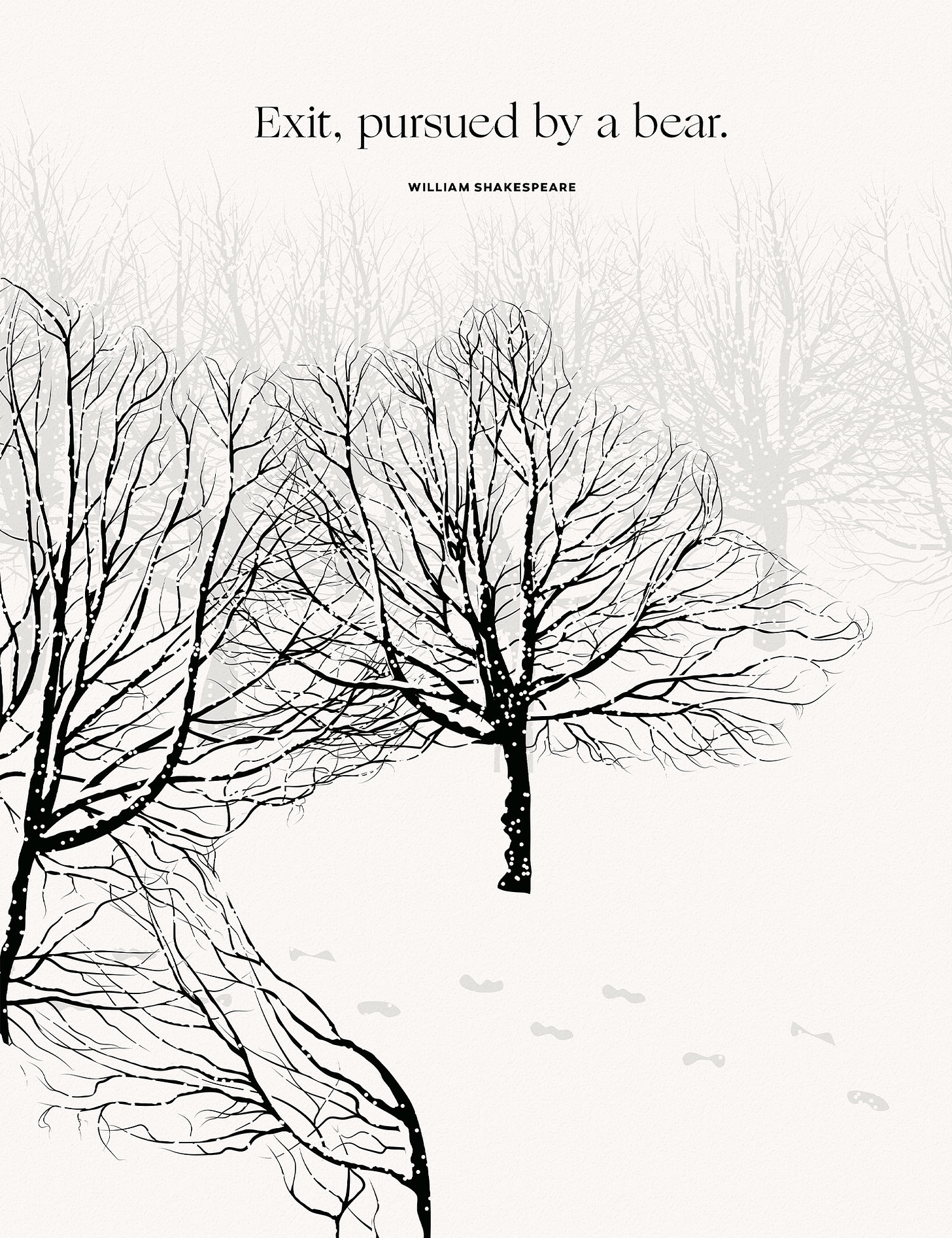
Shakespeare's Most Absurd Plot Device: Ursus Ex Machina
Exit, pursued by a bear - William Shakespeare
"Exit, pursued by a bear" is a stage direction from Shakespeare’s The Winter’s Tale that is infamous for its hilarity and difficulty to stage. It's one of the best literary inside jokes (welcome to the club!) and it's a fun line we wanted to illustrate for quite some time.
Generally, Shakespeare limited his stage directions to the most basic instructions - [Exit Hamlet], [Enter Ophelia], [Dies] - simple enough. But in this particular direction, a lot of things happen at once without any warning or supporting dialogue. Antigonus has been tasked with abandoning the baby Perdita in a desolate place, but he's having second thoughts. Suddenly a storm wrecks his ship, and then… he exits, pursued by a bear.
Wait what?
So, apparently there’s a bear in the woods, and it has entered. Hungry. Without so much as an “O help!” He is chased off stage and dispatched (Clown tells us “how the bear tore out his shoulder-bone.”) How can this sudden deluge of lightning, violence and fur not be funny? How do you stage it without destroying the tone of the scene? Or do you embrace the surprise and have a little fun? As you can imagine every approach has been tried, ranging from the literal and goofy (an actor growling in a bear suit) to the metaphorical (silk curtains blowing to suggest the storm and the bear at once). See some examples below.
An interesting thing happens when an erratic stage direction becomes its own meme, it goes from being a problem to an opportunity. If I were going to see a performance The Winter’s Tale tonight, I would definitely look forward to seeing what they did with this moment, and the more surprising the better.
About the Art
“In this illustration, I was interested in the leaky borders between two worlds, how one simulates and infiltrates the other, and how through its ability to fascinate, influences our perception of the real world in unexpected ways with unintended consequences.”
Art by Evan Robertson. All rights reserved.


